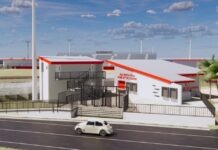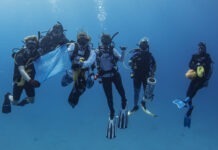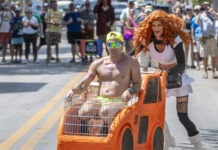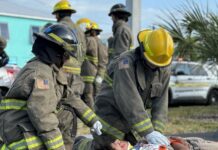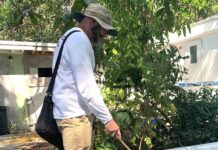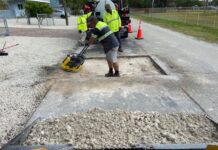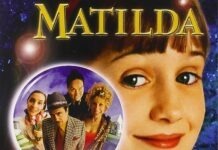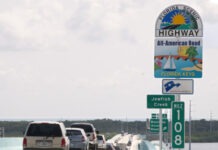When it comes to recycling in the Keys, there are tons of myths and misunderstandings. The Weekly is here to help comb through the confusion.
Myth: The Florida Keys don’t recycle.
Truth: “Absolutely, the Keys recycle,” said Cheryl Sullivan, director of Monroe County Solid Waste Management. All residential areas of the Keys have single-stream recycling bins. Contents are transported by truck to the Waste Management Reuter Recycling Facility in Pembroke Pines, where the recycling is sorted and prepared for processing.
Myth: Everything goes to the trash; the same trucks pick up trash and recycling.
Truth: Because the Keys are a chain of islands, we have to haul all our trash and recycling from our homes to transfer stations and then up to the mainland. The county arranges for this. Similar-looking trucks do pick up trash and recycling, but on different days of the week. Recyclables and trash do go to the same transfer stations but remain separated in different areas for proper recycling and landfilling, respectively.
Myth: Recycling doesn’t matter.
Truth: Recycling makes a big difference for the planet because we can reuse materials. It also makes a huge difference for our tax dollars: Monroe County pays a higher rate to haul out trash than recycling, so, the more we recycle, the more we end up saving ourselves in county taxes, Sullivan explained.
She added, “it’s important to recycle, but the bigger picture is we need everybody to reduce. That’s the bottom line.”
Myth: Things are getting worse.
Truth: Over the last four years, Monroe County has seen an approximate 14% increase in recycling – up to about 8,400 tons of recyclables processed in 2022. “We want to thank residents for that,” Sullivan said. “I think we’re getting there because of education. Waste Management is doing a good job talking about it on the radio, and schools are doing a good job talking to students. The awareness is out there.”
So, what’s the limiting factor?
“When people participate in curbside recycling programs, it’s important to understand that recycling facilities are designed to only process materials from that area’s ‘acceptable list,’” said Shiraz Kashar, outreach and education manager for Waste Management of Florida. “Sometimes, people do ‘wish-cycling,’ and they include lots of things they hope are recyclable – but that aren’t.”
He continued, “People think that every type of plastic can be recycled, but residential recycling programs only accept a very small window of recycling.” These programs are designed around the most popular consumer products in households.
Erroneous items include everything from hangers to batteries; plastic lawn furniture to old clothes. These things are not recyclable in the Keys’ single-stream blue residential recycling bins. Moreover, adding these items into bins “contaminates” the load; sorting machines aren’t designed to recognize those items, so human workers have to manually pick out erroneous items. This is inefficient and a potential safety hazard.
“Contamination has been getting really bad since the pandemic,” Kashar said. “Contamination slows down the recycling process and increases processing cost.” He also noted that food waste is a big problem and that plastic bags are “tanglers” because they jam up machines and require someone to go in there and manually cut them out. “They’re a bigger contamination problem because people bag their recycling,” he added.
When we start thinking about recyclables not as a secondary trash stream but rather as a commodity that gets upcycled and resold, it makes more sense. Food, other contaminants, erroneous items and plastic bags all make the process more inefficient. They also pose a danger to recycling handlers at facilities who have to remove jams. So, when we recycle in the Keys, we can help ourselves and others by learning what can and can’t go into our blue bins.
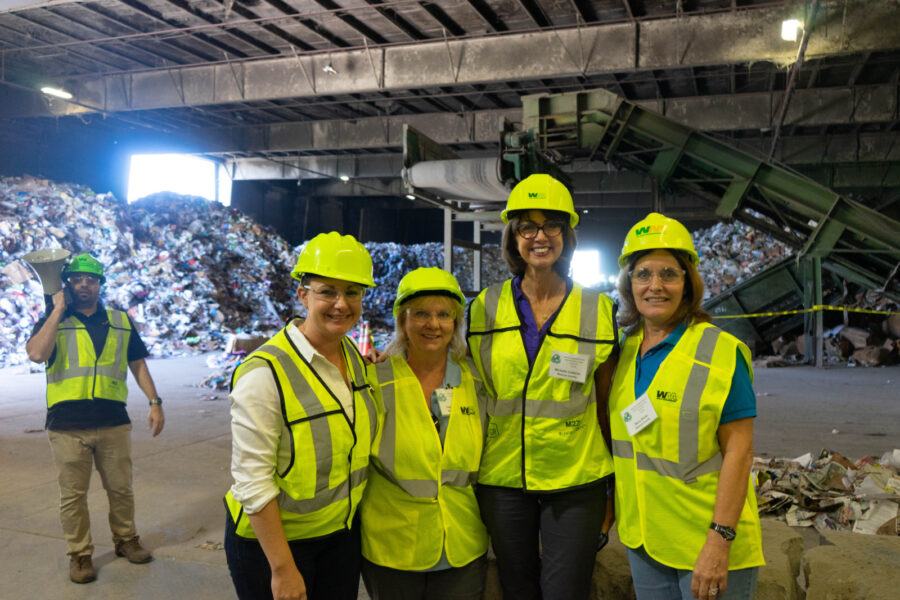
What can we actually recycle in Monroe County?
- Plastics:
- “Narrow neck” bottles where the neck is narrower than the body are generally recyclable.
- #1 (water bottles, 2-liter soda bottles) and #2 (2-liter bottles milk jugs, laundry detergent, lotion, shampoo, etc.) type plastics are recyclable; look for the number in the triangle recycling symbol.
- Some plastic “clamshells” that fruit/nuts/snacks come in are recyclable as long as they are type #1 or #2 plastics.
- Yogurt cups are recyclable if empty/rinsed.
- For pump bottles, take out the pump mechanism and throw that away, but recycle the bottle itself.
- It doesn’t matter whether you leave bottle caps on or off.
- Plastic bags, cling wrap and other plastic films are not recyclable in blue bins.
- Note: It’s very important to empty all food/liquid out of bottles and containers and rinse them out.
- Paper:
- Paper, mail, cardboard, newspapers and magazines (including shiny UV coated ones) are recyclable.
- Staples, tape, packing labels and the clear cellophane window on envelopes are okay to leave on and recycle.
- Clean parts of pizza boxes are okay IF you rip off all parts with food residue.
- Glass:
- Clear, green and brown glass colors are recyclable.
- Beverage containers and jars are recyclable; windowpanes, windshields, etc. are not.
- Note: Do not put broken glass in the recycling bin; it’s technically recyclable, but poses safety hazards for workers.
- Metal:
- Aluminum, steel and tin cans are recyclable.
- Take the lids off cans, empty and rinse them, then put lids back into the can to recycle the whole.
- Aluminum foil is not recyclable in the blue bins.
- Note: Make sure cans are empty and rinsed.
- Other:
- Note: Do not bag your recycling in a plastic bag; throw it directly into the recycling bin. Plastic bags tangle sorting machines.
- Tetrapak cartons (juice boxes, nut milks) are recyclable. Just empty/rinse them, flatten, and put the caps back on.
- Batteries, garden hoses, light bulbs, electric cables and appliances are not recyclable in the blue bins.
- Bottles of household hazardous waste (bleach, chemicals, rechargeable batteries, oil, acids, etc) should not be included in recycling bins for safety reasons.
The most updated recycling information can be found at www.monroecounty-fl.gov/69/solidwaste and www.wm.com/us/en/recycle-right. Questions about recycling collection schedules should be directed to haulers/collectors.

